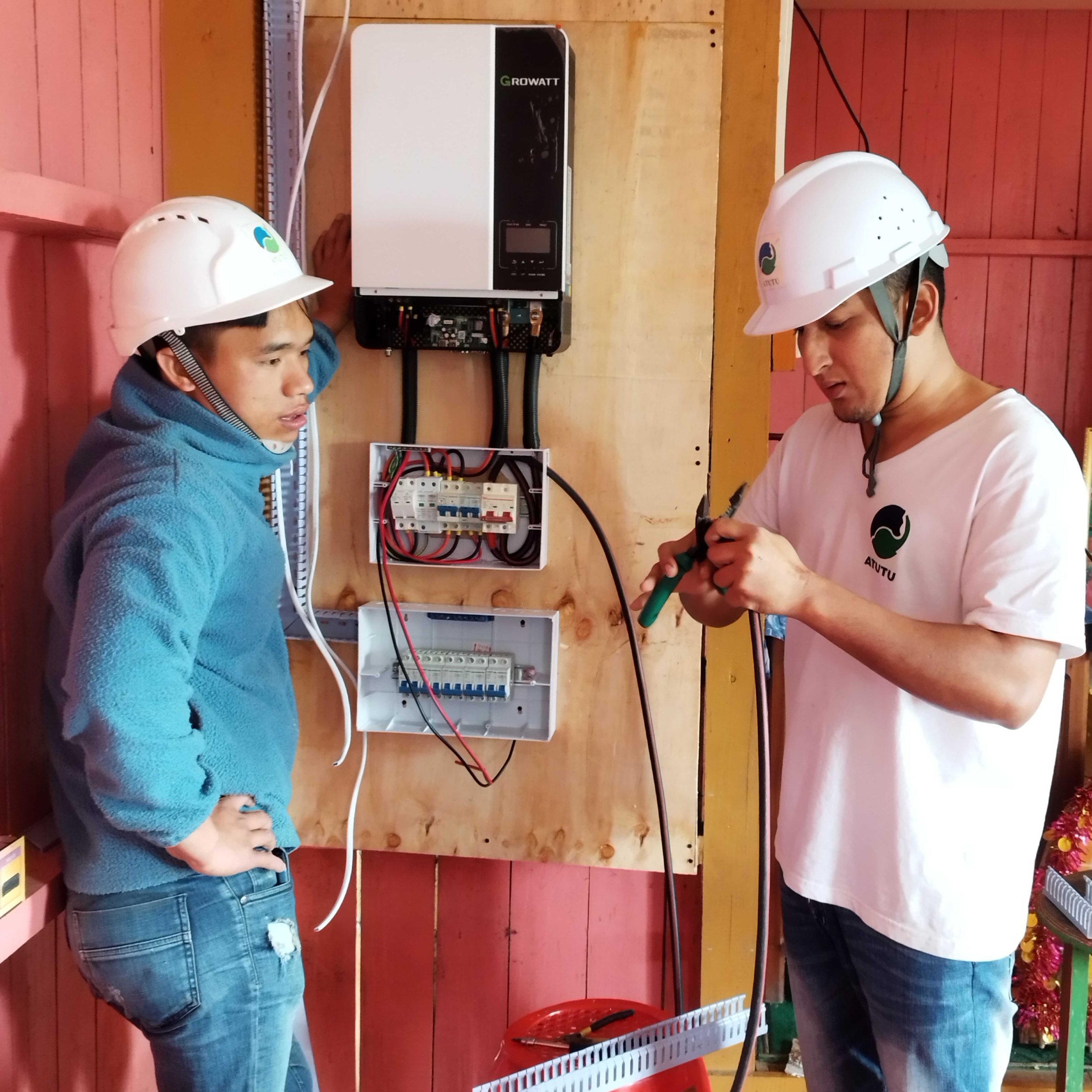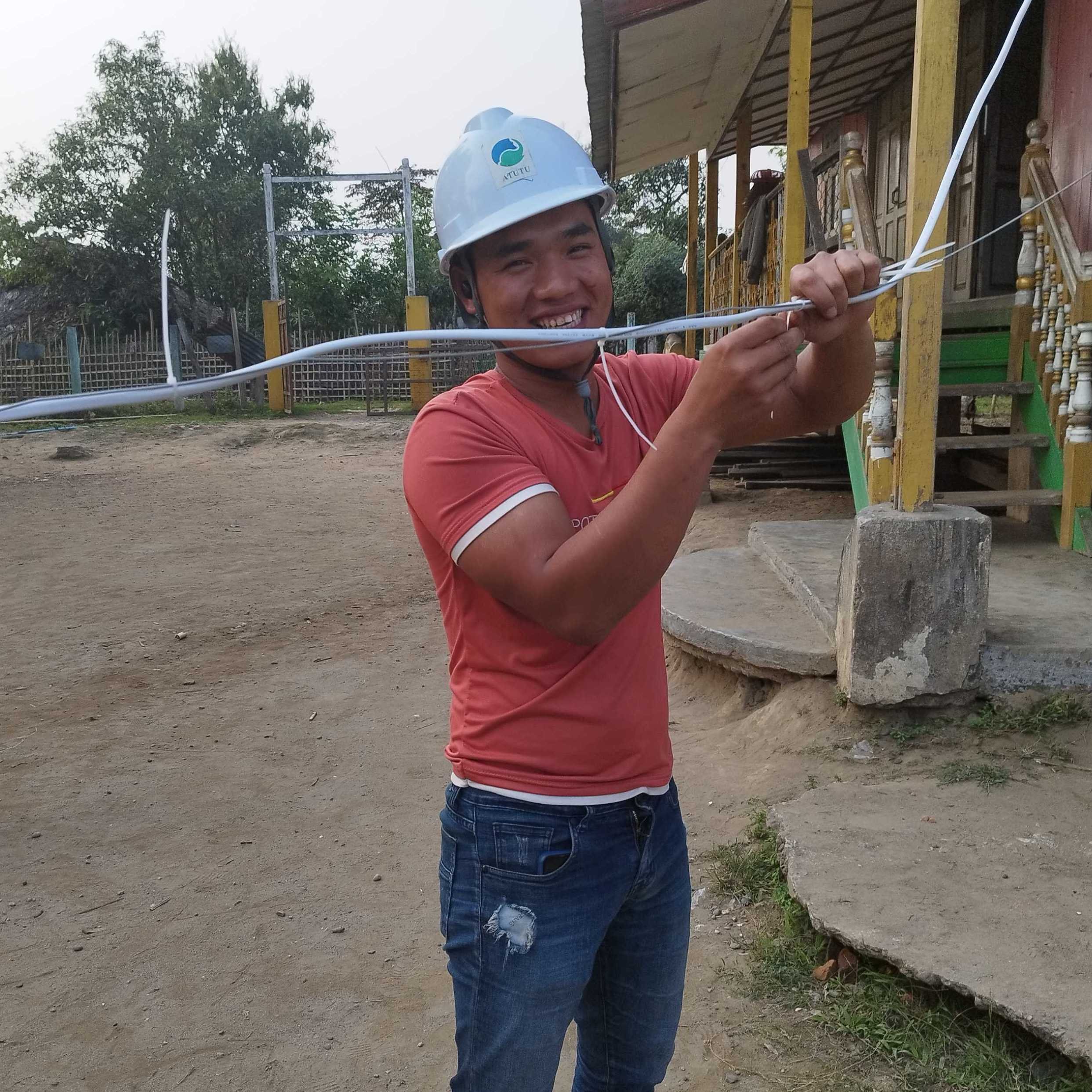
2023 Northern Kachin Boarding School Installation
Shifting a monastery from a dependence on diesel to sustainable solar energy
Northern Myanmar, March-April 2023
In Northern Myanmar, monks at an off-grid monastery run a boarding school for elementary school students from nearby villages, despite minimal access to electricity.
Over 30 students live in the monastery dormitories and are enrolled in the school program. Three teachers and two resident monks take the responsibility of educating the students.
Years away from getting grid access, the monastery relies on a diesel generator for lighting, small appliances, as well as to pump water into the water tanks.
Our team arrived on site to change that reality. With our system, the monastery will have 24/7 electricity access, completely eliminating their reliance on the diesel generator.
Here’s the story.
The team kicked off the installation by surveying the current landscape and meeting with the monks to determine solar availability, current energy needs, and projected energy usage.
And this is what we learned.
-
The monastery has five buildings, but only four are currently in use.
-
The monastery currently has three water reservoirs, with a fourth coming soon. The tanks are refilled daily using an electric water pump.
-
The generator runs for about 90 minutes during the day for the water pump and AC appliances, and for about 3 hours every night to help students as they study.
-
Diesel costs have skyrocketed due to political instability. The monks purchase diesel on a weekly basis (amounting to ~$72 USD per month) based on donations. When funds are insufficient, students study in the dark and have to manually carry water from the river up the hill.
The size of the monastery campus and diverse energy needs, along with increasing diesel costs, proved that the monks and students needed a sustainable way to power their daily lives.
To effectively address these energy need, we decided to install our new Community Microgrid powered by a central battery bank and a 5kW inverter. With 4 buildings on the monastery campus, it was a prime candidate to pilot this technology, which is designed to serve 4-5 buildings or homes.
Equipped with our monitoring system, we are able to log and report its energy production, consumption, and relevant system information to ensure proper usage and maintenance.
Learn more about our Community Microgrid here.
Challenging road conditions meant potential risk to the solar panels and components.
We circumnavigated this difficulty by transporting the materials via the river running by the monastery.
Our equipment arrived at the monastery undamaged after a 2 hour boat ride.
The students, teachers, and monks helped us unload the materials.
In just 2 days, our team completed the installation, from mounting the solar panels on the roof, to running wires to the buildings, to turning lights on for the first time.
We stayed an additional day to perform inspections and validate the system’s reliability as part of our quality control process.








By replacing the diesel generator with clean energy, we’ve enabled the monastery to:
pump water using solar power
illuminate classrooms and dorms at night
illuminate pathways and campus at night to promote public safety
By switching from 4.5 hours of paid diesel power to 24 hours of solar power everyday, we’ve effectively expanded the community’s energy access by 5.3 times and eliminated the cost of energy.
Eliminating the generator use means:
eliminating the noise from the generator
reducing greenhouse gas (GHG) emissions from generator
decreasing respiratory health risks posed by generator emissions
minimizing financial burdens of weekly diesel costs
With our system’s reliability and the money saved, the monastery can start to adopt electric appliances, such as kitchen stoves, water heaters, space heaters, and more.
We continue devoting our time and efforts to bring this level of reliable, low-cost solar energy access to off-grid rural clinics, community service centers, boarding schools, vocational schools, places of worship that provide community service, and other critical infrastructure.
Join our journey today by making a donation.













